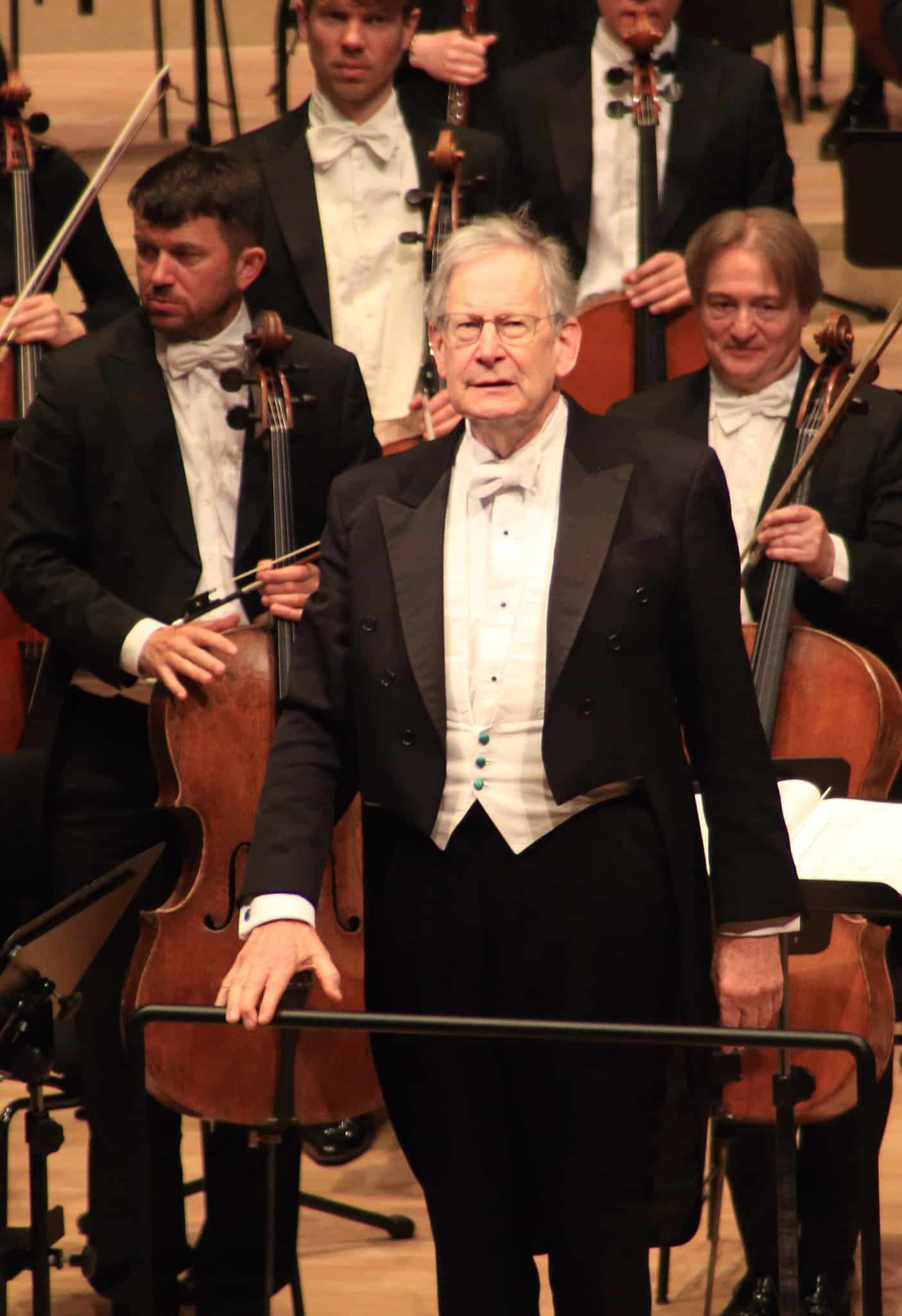Music prof goes to war over forced retirement at 65
mainPiano professor Lev Natochenny has a performing career and reckons he’s good to teach until 70.
The Hochschule für Musik und Darstellende Kunst(HfMDK) in Frankfurt wants him off the payroll this year, now that he has turned 65.
Lev, a student of Lev Oborin, has reached for lawyers. This could have far-reaching consequences.






Yes, Lev, you know very well… Its the law in Germany.
It goes for all people employed by Governments and
local City or county administrations. Even huge companies
like Siemens, Lufthansa and numerous others apply to the
same system. This might not be funny for those suffering
from this system. But we must, I repeat: must give a chance to
younger generations ! When you were hired,
most probably you got the job of someone forced to retire
at the age of 65.
Maybe he was as angry about it like you are now…
Yes, Lev has passed his selling date and is now a smelly piece of garbage, of no use to his students or society. I can’t wait to hear what you think should be done to him if he has to go to the hospital. The system, oh yes the ‘system’ will determine what becomes of his soul. I am frozen with fear, and the profoundest contempt, that there are so many like yourself, little Lenins hatching their cheer.
This is not a very pleasant comment to have on this site, and I find it to be a very personal, angry and unnecessary attack on a man I don’t know but you obviously do.
We suspect the comment is weighted with irony.
Not really.
It is a discussion that has been brewing for years now – on the one hand more and more people in central Europe have come to see the retirement years as some kind of Nirvana they want to enter ASAP, while on the other hand there is quite a number of people who want to carry on working, as they feel fit enough.
Remember the stories about eighty year old musicians in American orchestras? Rainer Küchl, concertmaster of the VPO played his last New Year’s Day Concert this year. He’ll be sixty-five – and therefore retired.
Solution?
If you have one, please let me know….
my comment was directed at Mr Lebrecht’s statement that “This could have far-reaching consequences.”
He’s luckier than some. A music teacher can carry on privately. A personnel clerk probably cannot find an alternative way to employ his/her skills.
Even if he wins, which I think is unlikely, it wouldn’t have far-reaching consequences. Instead of overturning retirement laws, he would be utilizing a clause allowing for exceptions in rare cases. In the States, with so many young people looking for jobs, it’s an outrage that musicians reach 65, and then continue to work for the next 15 years while collecting both their salary AND their pension. Selfish double-dipping that often pushes an entire generation of young people out of a chance for the position. Piggish.
I don’t think that a fair comparison can be made between US and European pensions. In Europe, as a musician, you are generally entitled to a government pension, which can be equal to your salary that you stop earning when you retire. In the US, when you reach 62, you can start collecting social security, or wait till your 65 or even 70 to collect a higher percentage of what you would have started to collect at age 62. You can still keep working. The difference is, that social security in the US is not a living wage. So, if you don’t get a seperate private pension from your orchestra, then you might have to keep on working, like it or not, if you don’t have your own investments saved up to keep you going. I won’t even mention the health care costs that retirees need to supplement, unlike their European colleagues.
In the orchestras in the US where the musicians earn a sizable income, they will have their private pensions. In the smaller orchestras, if there are private pensions, they will be small, so that even a retired musician from a small orchestra will have to supplement his social security income by working.
How stupid. When I was in college at the University of Wisconsin in the 1960s, the famed violinist, Rudolf Kolisch*, was forced into retirement at a ‘mandatory’ age of 70. When that happened, Gunther Schuller at the New England Conservatory saw the opportunity, hired him, and Kolisch became a distinguished member of the faculty at NEC until he died twelve years later!
* http://en.wikipedia.org/wiki/Rudolf_Kolisch
To my eternal benefit…
Wow, should Horowitz or Rubinstein have been retired in their mid 60’s? I can think of great musicians over 70 and even 80. They deserve our respect particularly as teachers, not a kick in the behind on the way out.
it all depends on whose ox is gored. Personally, I know many more young people who can’t get jobs than old people who don’t want to leave. Those who are now 65 had the demographic advantage that millions of men (mostly men) from the generation immediately before them lost their lives in WWII. Frankly, it’s time for the early boomers to start getting out of the way.
Here is another way to look at the problem. When SS in the US adopted 65 as a general expected retirement age, only 50% of adult males lived to retire. Since then, the life expectancy has increased and a 65 yo male has a life expectancy of 20 additional years, on average. These are averages and there is a very wide range of individual healthcare and health habits mixed into the average. There is also a wide range of occupations and job requirements and that also affects determination of an individually appropriate retirement age. Retirement at 65 may be appropriate for some but forced retirement at 65 is clearly outdated.
In Germany at least, the state ensures proper pension arrangements for salaried musicians and professors which leaves them free to retire with less financial insecurity than in the UK where most musicians are at least partially freelance and can barely afford to contribute to a decent pension; work irregularity being a significant factor.
Unless he sacrifices his state-financed pension, he shall try his luck earning money privately.
I feel many are well able to work well beyond the regular pension ages, but the continuing problems to finance pensions should force us not only to raise retirement ages, but also to limit massively taking both, a pension and a regular salary – even when earned in the private sector.
Saying that, I am aware many pensioners struggle while low pensions. Of course those shall continue to be allowed to earn extra money in addition to receiving their pension.
I believe that forced retirement at an arbitrary age is never a good solution. As others have commented, a lot of people still have many healthy, productive years before them at the age of sixty-five years, so why should they be pushed aside. As younger people (of which I am one), we just have to accept that obtaining a prestigious position is a career move that will come later than for previous generations — personally, I think that is a price worth paying for being able to enjoy the insight, wisdom, and experience of the elderly, and for being able to enjoy a higher life expectancy than previous generations.
The problem being that young musicians can’t hold out until they are 35 or 40 before getting a good position — no health insurance, poverty for their children, etc. Many of the best quit before then and go into other fields. 65 still seems like a good balance between respecting both the elderly and creating opportunity for the young.
2nd attempt:
65 is a very procrustean method: too early for some, too late for many, and rarely at the right time for anyone. But quite easy to handle by the all ruling bureaucracy, of course.
True, but ya gotta draw the line somewhere. In Trossingen a compromise is sometimes made which gives retired professors a Lehrauftrag to keeping teaching their current students until they graduate. They get to finish out the class and thus get about three more years of part time teaching that gradually tapers off.
If he doesn’t like the system, why did he have no problem reaping its benefits, only to be enraged when he is about to retire? And the pension usually is good. And he can continue giving masterclasses and teaching privately as long as he wants.
Young professionals also need their opportunities. The old farts should be happy with the very generous pension system they have today. The next generation will not have it as good.
Could be that in the years since he started teaching, the Age Discrimination Act was passed and most schools have seen the stupidity of shedding faculty at a predetermined age, and he (wrongfully, it seems) thought things had evolved similarly at his school. And you THINK the pension is good. A pension? Do you even know there’s a pension? And your final ageist comment does not deserve a response.
Age discrimination act? Germany knows no such thing.
Again, when he signed the contract years ago, he was fully aware that it is limited until he turns 65. It is one thing to argue against it, but completely unjustified to scream foul.
In Germany, T4 program.
What is to stop him from teaching privately except that he wants to have his students handed to him instead of having to attract the students on his merit?
Are my comments intentionally censured, or is there a technical problem?
Anybody unfamiliar with German employment law: hold your breath. It is almost impossible in Germany to fire someone employed in public service, period, even if he or she underperforms. (unless he “stole a golden spoon”) Mandatory retirement at lawful retirement age is an important stop gap measure to prevent lame ducks holding on to their jobs for ever.
That it will stop the occasional high achiever right in his tracks is unavoidable, but there are some many other options for them to stay professionally active and the pensions are good as well.